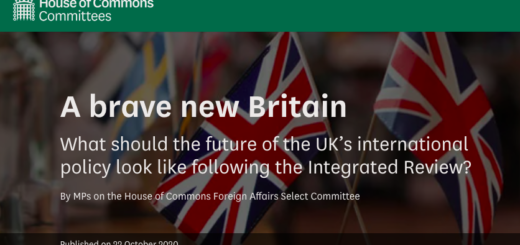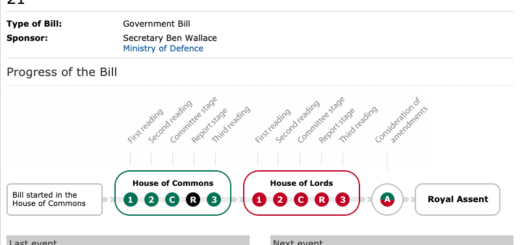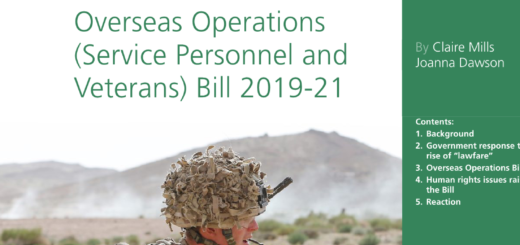Chris Woods of The Bureau of Investigative Journalism was invited to address the APPG on Drones on their investigation into the deprivation of citizenship and targeted killing of Britons.
The meeting was chaired by John Hemming MP. Chris Woods began by exploring the issue of covert drone strikes by the United States. He noted how the estimated current number of casualties from drone strikes is in excess of 3,000; the result of approximately 420 strikes. He indicated that a number of non-locals had been killed in these strikes in Pakistan and Somalia; in Yemen, deaths were primarily focused on the local population. In the case of non-locals killed in Pakistan, these were often nationals from the surrounding countries, such as Afghanistan and Uzbekistan. Chris pointed out that there were a number of reasons as to why foreign nationals were attracted to this region: some were drawn by the recent conflict, while others had arrived earlier, during the conflict with the Soviet Union.
Chris stated that Bureau research indicates that between 15 and 17 UK citizens had so far been killed in US covert airstrikes. This was the highest number of victims from any Western country; followed by Germany and the United States. The first known UK death by US action in the ‘covert war on terror’ came in January 2007, targeting alleged members of Al-Shabaab in Somalia. The first death of a UK national by a US drone strike followed in November 2008, when Rashid Rauf was killed in Pakistan. The most recent death was of Mohammed Sakhr, who had been deprived of his citizenship and was later killed in Somalia in February 2012.
Chris then moved to discuss the issue of citizenship deprivation. He noted that 23 UK nationals had had their citizenship stripped since 2006. 18 of these deprivations occurred during the Coalition government, since 2010; with a present pattern of roughly six per year. The removals were performed by the Home Secretary and most occurred when the person was outside the country. At least five of those who have had their citizenship revoked were British born.
Chris examined a number of cases of individuals who have had their citizenship removed, the first of which was Bilal al Berjawi. Al Berjawi was Lebanese born and London raised. He was first linked to Al Shabaab in 2006 and lost his UK citizenship in 2010. The first US attempt to kill him was via a drone strike in 2011; an attack in which he received serious injuries. He was finally assassinated by drone in January 2012, after a telephone call to congratulate his wife on giving birth. The second case was of Mohammed Sakr, who was born in Britain. He had his citizenship removed in the autumn of 2010 for alleged terrorist activities and for his relationship with Al Berjawi (the pair were actually childhood friends). The UK Government justified this citizenship deprivation on national security grounds, and on the basis that Sakr also held Egyptian nationality - an assertion denied by his family, who allege that the loss of this British citizenship rendered him stateless. Chris noted that Sakr was not charged with any serious offence in the UK prior to his deprivation. He also commented that neither Al Berjawi nor Sakr seemed to feature prominently in recent investigations into al Shabaab’s structures. It was important to consider that fact that, of only seven confirmed US drone strikes carried out in Somalia, three have targeted former British citizens.
Chris noted that Ian Macdonald QC, president of the Immigration Law Practitioners Association (ILPA), had recently raised concerns that the deprivation of UK citizenship may remove a bar on the UK security services sharing information with the United States on such individuals, as they are no longer UK citizens. Thus the UK might consider itself no longer liable for the consequences of any information sharing.
Though not a case linked to drone strikes, Chris also highlighted the recent example of Mahdi Hashi, a former UK citizen, whose citizenship had been stripped in summer 2012 before he was subsequently rendered to the United States. Mahdi Hashi was of Anglo-Somali origin and had his UK nationality removed in June 2012. He was arrested with two Swedish citizens in Djibouti six weeks later. Hashi’s family only found out about his detention through the family of one of the Swedish detainees. The UK refused to provide assistance to Hashi’s family as he was no longer a UK citizen. Significantly, Swedish police had ended their criminal investigation into these Swedish citizens the same day as they were detained; strongly suggesting an information sharing relationship between the Swedes and the US. All three men were secretly rendered to New York to face terrorism charges. To date, Hashi and his family have yet to receive any assistance from the UK government.
Chris concluded his presentation with the assertion that there are at least four additional cases where citizenship has been deprived but where there was no information publicly available on the basis for, or consequences of, the deprivation, for example, if they were rendered stateless. He also re-iterated the significant point that among the cases about which there was information known, a number of these were British-born individuals.
The meeting then moved to a broader discussion of the issues raised.
The questions began with one to Chris, asking how many other countries he knew of which had deprived their nationals of citizenship. Chris noted that it appeared to be rare. He was aware that Canada was considering such a policy; the US used this in very rare situations. The questioner noted that Saudi Arabia had removed Osama Bin Laden’s citizenship and argued that, in some cases, the removal of citizenship was necessary. In response, Chris commented that the key issue was the process, rather than a State’s right to deprive. The UK’s current process was arbitrary and was often performed on people when they were outside the UK, severely inhibiting their ability to appeal the decision. This led to a discussion about the legality of the process in relation to leaving individuals stateless. This was what had happened to Mohammed Sakr, his family alleges; his lack of any other citizenship apart from his UK nationality meant that when this was removed, he was effectively trapped in Somalia. Concerns that people were being rendered stateless by this process was explored by participants at the meeting; focusing on the UK’s condemnation of Bahrain, which has rendered human rights activists and others stateless as the result of citizenship stripping. There were at least two UK cases, including one from Vietnam, where UK courts have concluded that individuals had been rendered stateless by the UK.
In the case of Pakistan, discussions with security officials had revealed that many British ‘jihadis’ were now no longer taking up the option of Pakistani citizenship because of these dangers, one questioner noted. The discussion then moved to the issue of intelligence sharing between states for the purposes of drone strikes. The German government has banned intelligence sharing with the US, where such information might lead to the targeted killing of their citizens, as they believed EU law was clear that this was not allowed.
A participant raised a concern that the practice of the UK government setting citizens up for assassination was not new and has been seen previously in Northern Ireland; for example, in the sharing of information with Loyalists, as highlighted in the recent Da Silva Report. A concern now was the rate at which these deprivations were occurring. A question was asked as to how notice was given when a deprivation occurred – was it registered in the House or was it just sent to the person concerned. Chris responded that the Secretary of State sent a notice to the family or to the last known address via registered post. The notice is effective immediately, which is highly problematic if the person is outside the UK at the time.
Chris highlighted some of the challenges of looking at this issue – for example the exceptionally slow response from the Home Office to FOI requests. There are also a number of cases currently shrouded in mystery. This was compounded by the reliance on SIAC to hear appeals, though few cases get to this stage. One case in which the Court of Appeal has confirmed the Home Office had unlawfully made an individual, Mr al Jedda, stateless, will shortly be heard by the Supreme Court, after an appeal by the government
The discussion concluded with a consideration of the proliferation of drone technology and the impact this was having on the nature of modern warfare.




